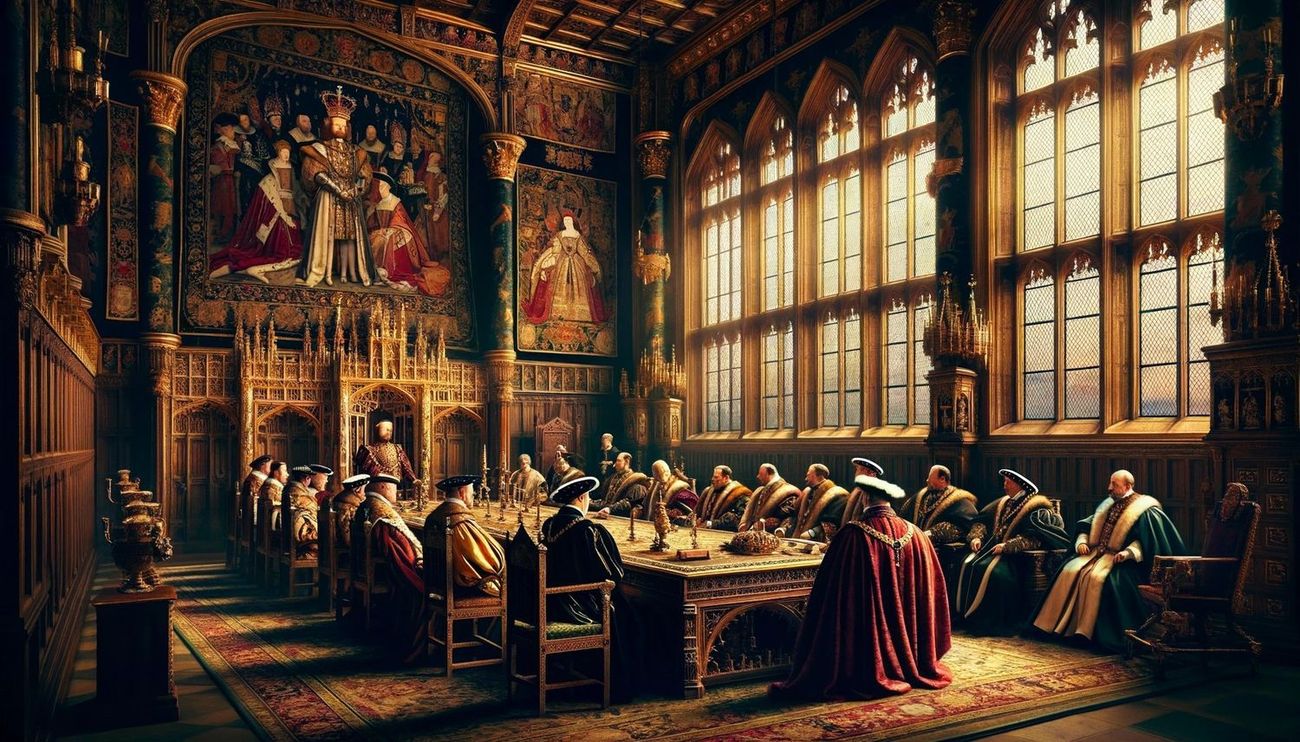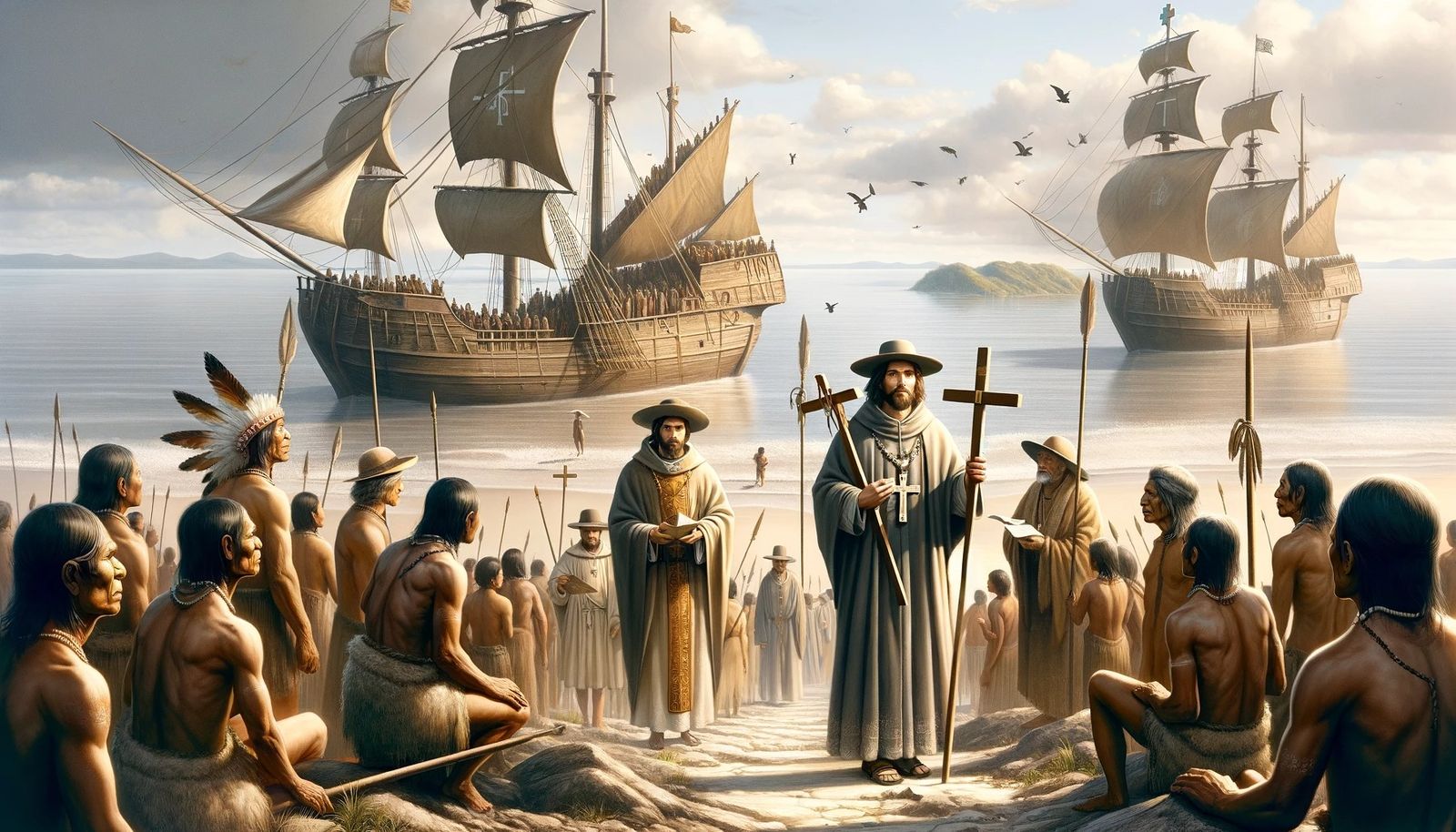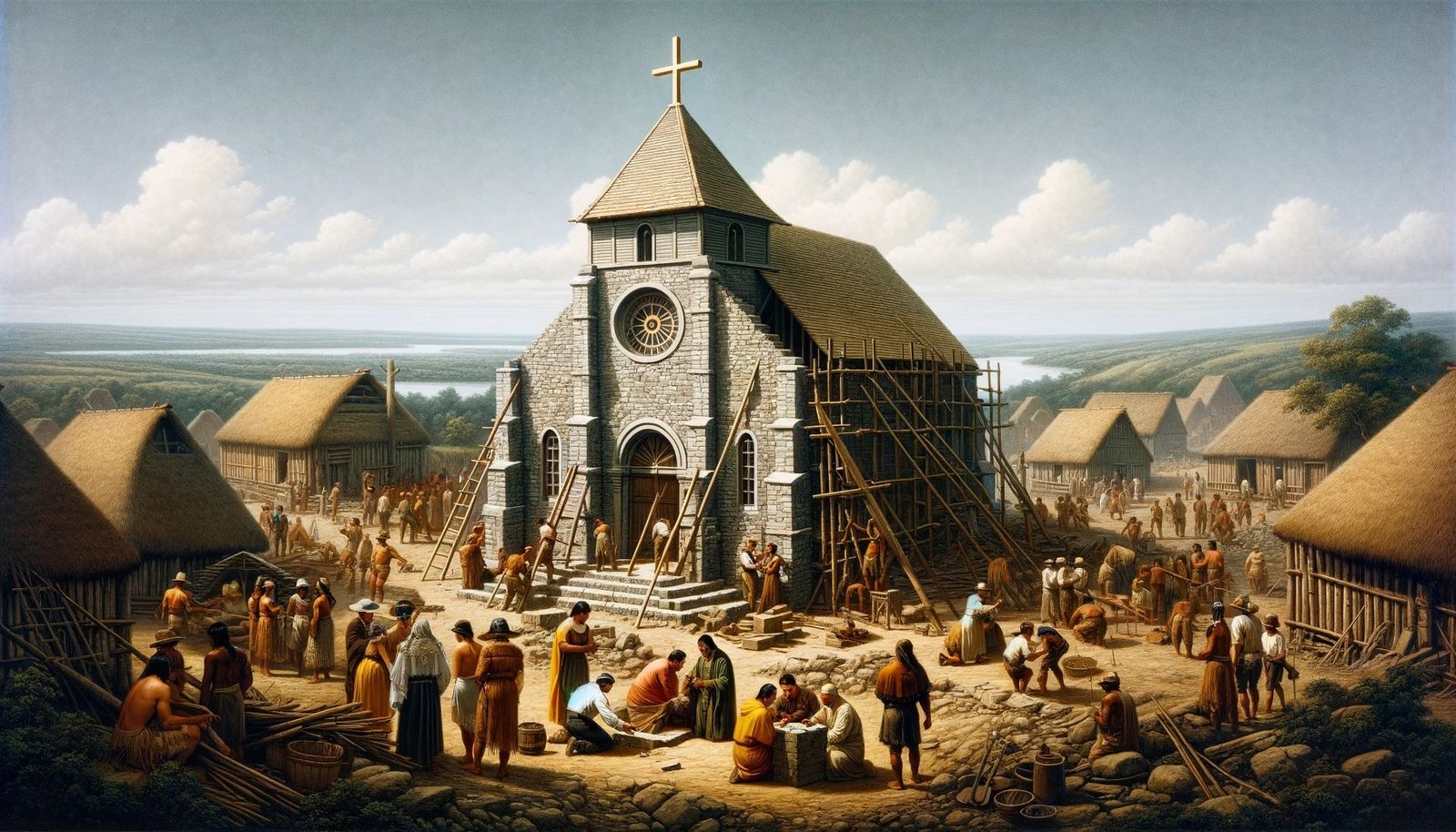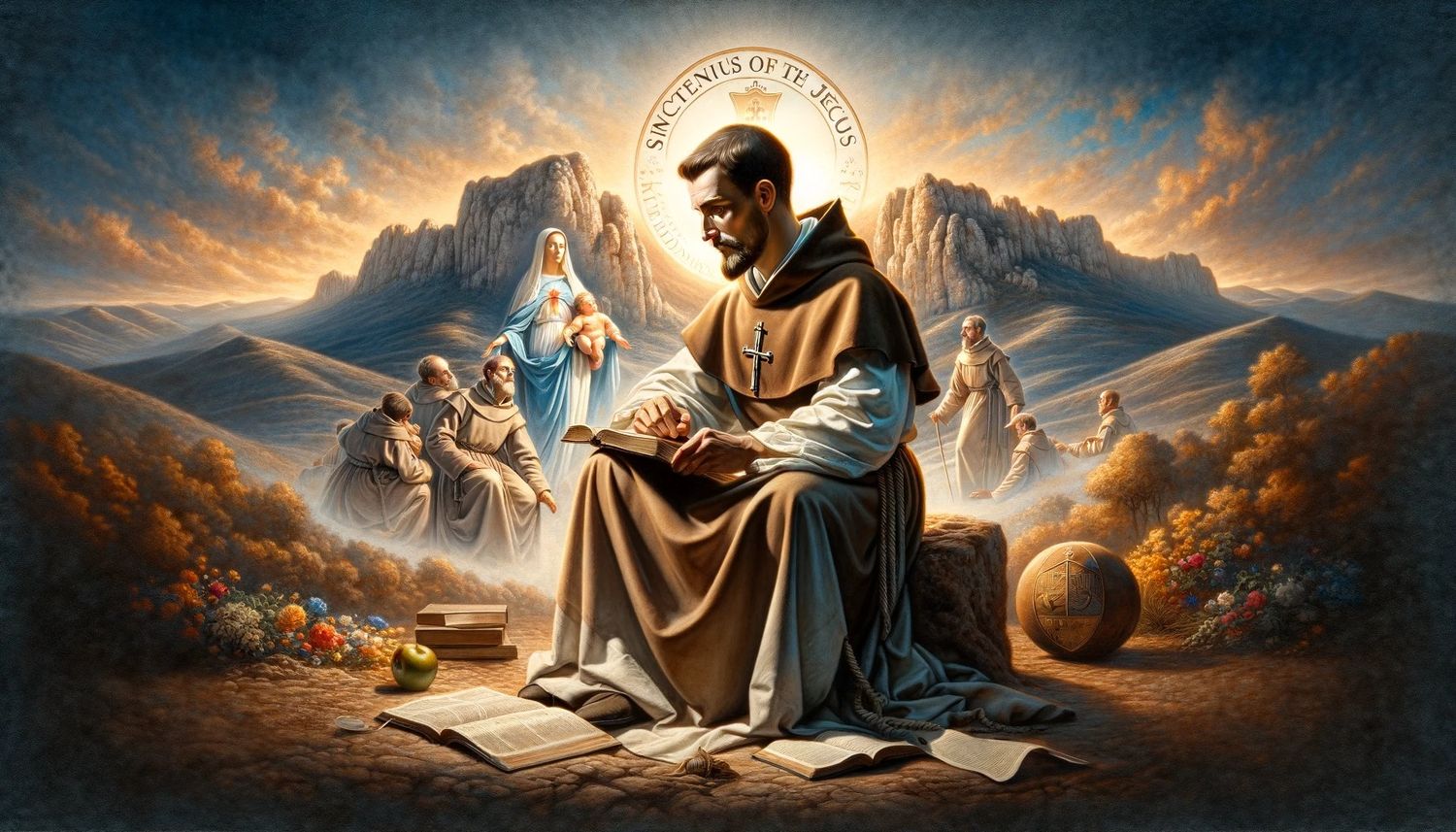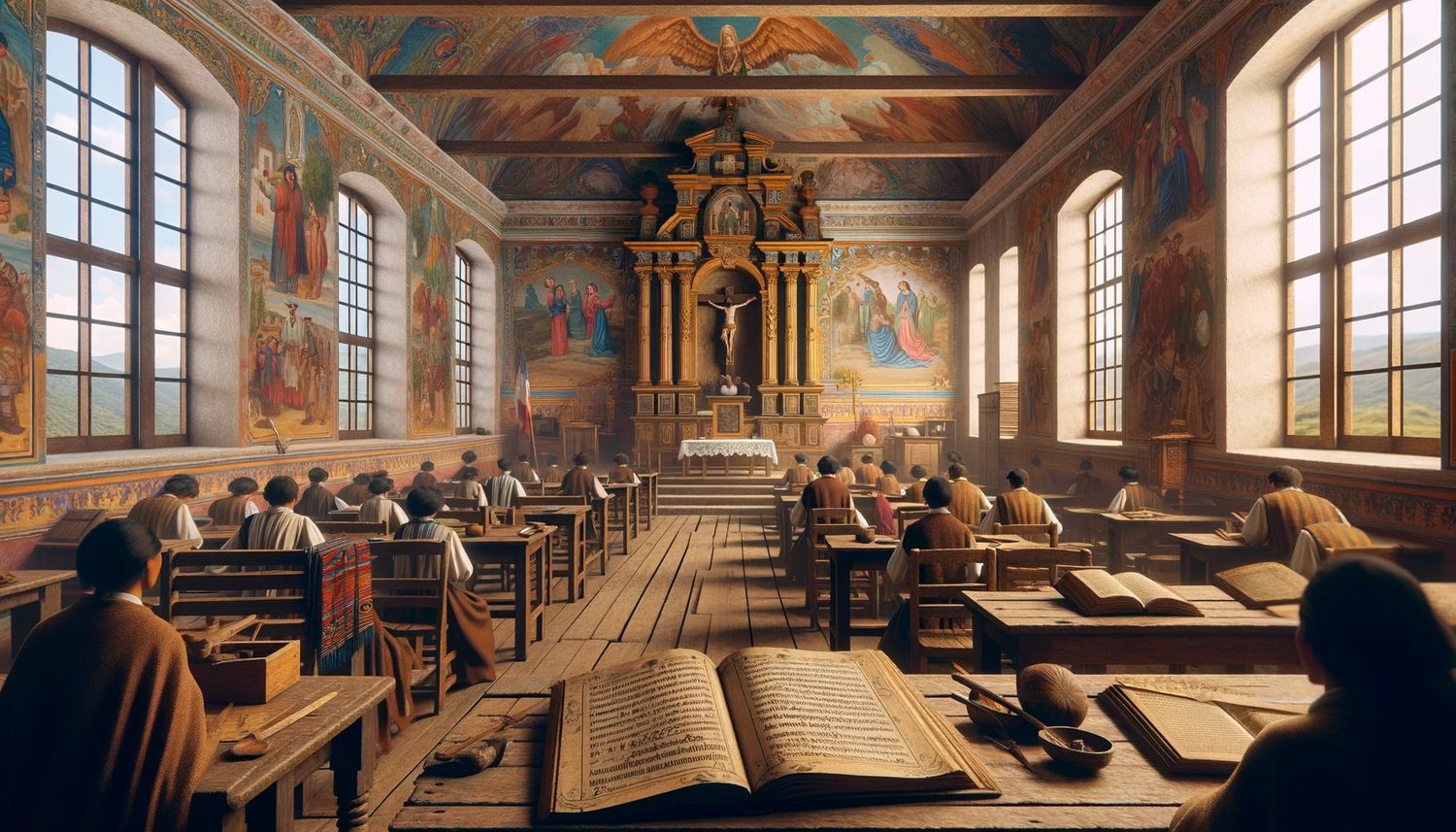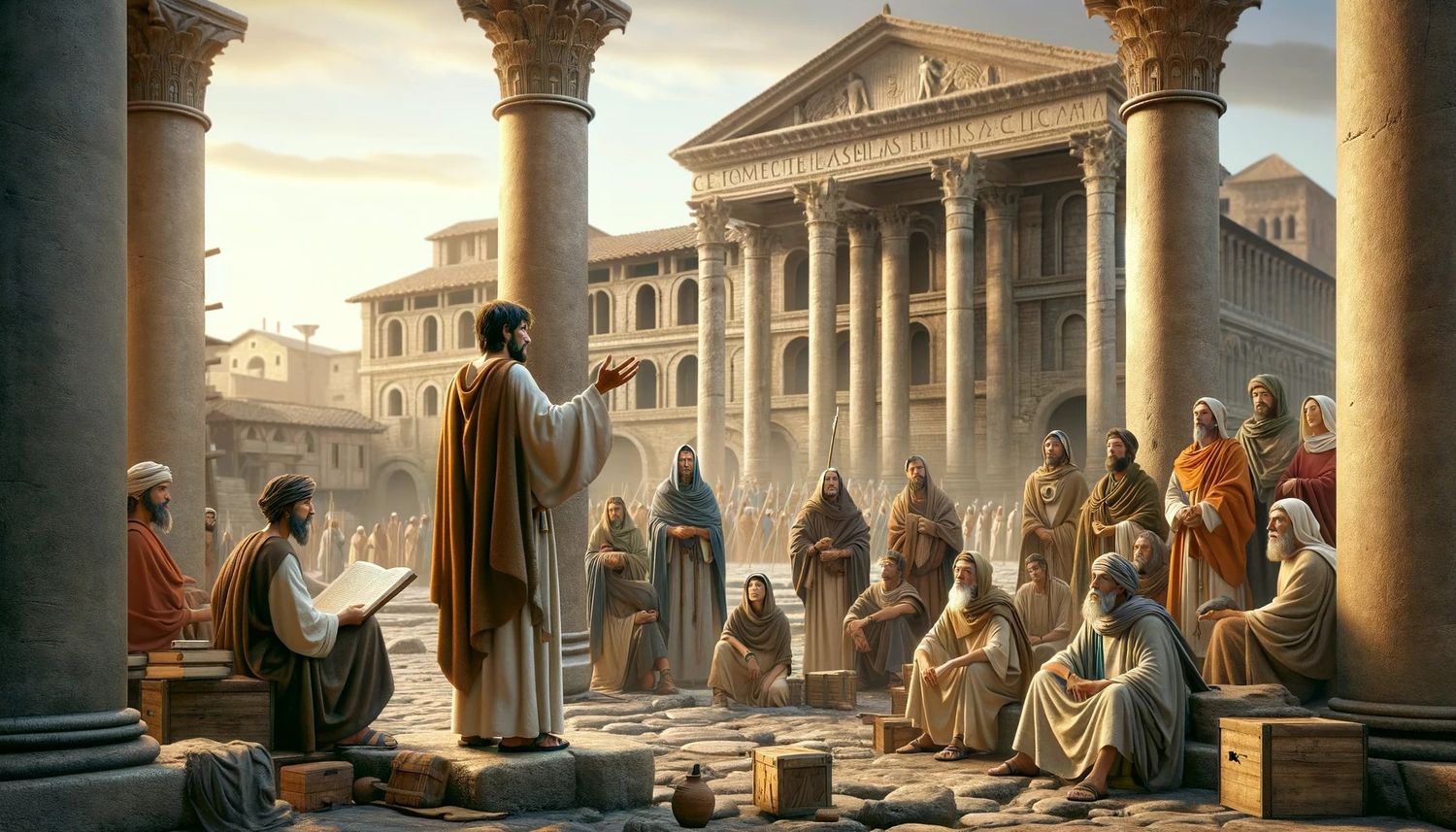Home>Theology and Spirituality>How Did Henry IV’s Conversion To Catholicism Help France Unite


Theology and Spirituality
How Did Henry IV’s Conversion To Catholicism Help France Unite
Published: February 15, 2024
Jason DeRose, Managing Editor at Christian.net, uses his expertise in religion and journalism to deepen understanding of faith's societal impacts. His editorial leadership, coupled with a strong academic background, enriches the platform’s diverse content, earning him recognition in both journalism and religious circles.
Discover how Henry IV's conversion to Catholicism played a pivotal role in uniting France, and its impact on theology and spirituality. Explore the historical significance and lasting effects.
(Many of the links in this article redirect to a specific reviewed product. Your purchase of these products through affiliate links helps to generate commission for Christian.net, at no extra cost. Learn more)
Table of Contents
Introduction
The story of Henry IV's conversion to Catholicism is a compelling tale of political maneuvering, religious strife, and the quest for national unity in 16th century France. This pivotal moment in history not only shaped the destiny of a nation but also had far-reaching implications for the religious landscape of Europe.
Henry IV's decision to embrace Catholicism was not merely a personal spiritual journey; it was a strategic move that aimed to heal the deep wounds inflicted by decades of religious conflict. The Wars of Religion had torn France apart, pitting Catholics against Protestants in a brutal and protracted struggle for supremacy. Against this backdrop of division and bloodshed, Henry IV's conversion emerged as a beacon of hope, offering the promise of reconciliation and stability.
In this article, we will delve into the early life and religious background of Henry IV, explore the tumultuous Wars of Religion that ravaged France, and examine the circumstances that led to his momentous conversion. We will also unravel the significance of the Edict of Nantes in fostering religious tolerance and analyze the profound impact of Henry IV's conversion on the unity of France.
Join us on a journey through the corridors of power, the battlefields of faith, and the intricate tapestry of religious and political intrigue as we unravel the compelling narrative of how Henry IV's conversion to Catholicism played a pivotal role in uniting a fractured nation.
Read more: Why Did King Henry IV Convert To Catholicism
Henry IV's Early Life and Religious Background
Henry IV, born as Henry of Navarre on December 13, 1553, into the House of Bourbon, was destined to become one of the most influential figures in French history. His upbringing in the Protestant faith, specifically as a Huguenot, significantly shaped his early life and worldview. As a member of the Bourbon dynasty, Henry IV was immersed in the complex web of religious and political dynamics that defined 16th century France.
From a young age, Henry IV experienced firsthand the religious tensions that permeated French society. The bitter divide between Catholics and Protestants, exacerbated by decades of conflict, cast a long shadow over his formative years. His mother, Jeanne d'Albret, a staunch advocate of Protestantism, played a pivotal role in shaping his religious identity and instilling in him a deep sense of conviction in the Huguenot cause.
Amidst the backdrop of religious turmoil, Henry IV's early life was marked by adversity and resilience. His experiences during the St. Bartholomew's Day massacre, a brutal episode of targeted violence against Huguenots, left an indelible imprint on his consciousness and fueled his unwavering commitment to safeguarding the rights of Protestant believers.
As Henry IV ascended to the throne of Navarre and later pursued his claim to the French crown, his religious background became a focal point of contention and intrigue. The entrenched animosity between Catholics and Protestants cast a shadow of uncertainty over his legitimacy as a ruler, setting the stage for a tumultuous and transformative chapter in his life.
Henry IV's early life and religious background not only shaped his personal convictions but also positioned him at the epicenter of a religious maelstrom that would ultimately redefine the course of French history. His journey from the tumultuous landscape of religious conflict to the corridors of power would culminate in a pivotal moment of decision that would reverberate across the annals of time.
The Wars of Religion in France
The Wars of Religion in France were a tumultuous and protracted series of conflicts that engulfed the nation in a relentless struggle for religious and political supremacy. Spanning the latter half of the 16th century, these wars were fueled by deep-seated animosity between Catholics and Protestants, primarily Calvinists known as Huguenots. The religious landscape of France was a tinderbox of sectarian tensions, and the spark that ignited the conflagration was the Reformation, which had taken root in the hearts and minds of many French citizens.
The initial stirrings of religious discord erupted into open hostility with the Massacre of Vassy in 1562, marking the onset of the first of several brutal confrontations. The conflict escalated into a cycle of violence, reprisals, and territorial struggles, plunging France into a state of perpetual turmoil. The Edict of Saint-Germain in 1562, which granted limited religious freedoms to the Huguenots, failed to quell the escalating hostilities, leading to a succession of battles and sieges that ravaged the countryside.
The ascension of Henry III to the throne in 1574 did little to alleviate the mounting tensions, as the religious divide continued to fracture the fabric of French society. The infamous St. Bartholomew's Day massacre in 1572, orchestrated in Paris and subsequently spreading to other cities, stands as a harrowing testament to the depths of religious fanaticism and the brutality of sectarian conflict. The massacre, which targeted Huguenot leaders and civilians, sent shockwaves across Europe and intensified the enmity between Catholics and Protestants.
The subsequent reign of Henry IV, a Huguenot prince who later converted to Catholicism, brought a glimmer of hope for reconciliation amid the bloodshed. His ascent to the throne marked a pivotal juncture in the Wars of Religion, as he sought to navigate the treacherous waters of religious strife and forge a path towards national unity. The eventual promulgation of the Edict of Nantes in 1598, under Henry IV's reign, granted substantial religious freedoms to the Huguenots, signaling a crucial step towards ending the cycle of violence that had plagued France for decades.
The Wars of Religion in France left an indelible mark on the nation's psyche, shaping its political landscape and religious ethos for generations to come. The scars of sectarian conflict ran deep, but amidst the ashes of devastation, the seeds of religious tolerance and national cohesion began to take root, paving the way for a new chapter in French history.
This period of strife and upheaval set the stage for Henry IV's pivotal decision to embrace Catholicism, a choice that would reverberate far beyond the confines of personal faith and resonate with the destiny of a nation yearning for unity amidst the ravages of religious discord.
Henry IV's Conversion to Catholicism
The conversion of Henry IV to Catholicism stands as a watershed moment in the annals of French history, marking a pivotal juncture in the tumultuous tapestry of religious conflict and political intrigue. Henry IV's decision to renounce his Protestant faith and embrace Catholicism was not merely a personal spiritual odyssey; it was a strategic maneuver aimed at fostering national reconciliation and consolidating his claim to the French throne.
The backdrop against which this momentous conversion unfolded was fraught with complexity and nuance. As a Huguenot prince ascending to the French throne, Henry IV faced formidable challenges in navigating the treacherous terrain of religious animosity and dynastic rivalries. His conversion to Catholicism, culminating in his formal abjuration of Protestantism in 1593, was a calculated move intended to assuage the deep-seated suspicions of the Catholic majority and solidify his legitimacy as the ruler of a deeply divided realm.
The political calculus underpinning Henry IV's conversion cannot be overstated. By embracing Catholicism, he sought to bridge the gaping chasm between the warring religious factions and pave the way for a much-needed era of reconciliation and stability. His pragmatic approach to religious affiliation was driven by a keen awareness of the imperatives of statecraft, as he endeavored to heal the festering wounds of religious discord and forge a path towards national unity.
The ramifications of Henry IV's conversion reverberated far beyond the realm of personal faith. It served as a catalyst for a seismic shift in the religious dynamics of France, offering a glimmer of hope amidst the ravages of sectarian strife. His conversion, while eliciting mixed reactions from both Catholics and Protestants, ultimately set the stage for the promulgation of the Edict of Nantes in 1598, a landmark decree that granted religious freedoms to the Huguenots and sought to lay the groundwork for religious tolerance and coexistence.
Henry IV's conversion to Catholicism was a masterstroke of political acumen, a calculated gambit that sought to transcend the confines of religious allegiance and chart a course towards national concord. It embodied the complexities of power, faith, and the imperatives of leadership in an era riven by religious schism and dynastic rivalries. His embrace of Catholicism, while stirring controversy and debate, ultimately played a pivotal role in shaping the destiny of a nation yearning for unity amidst the crucible of religious conflict.
This momentous conversion, shrouded in the mists of history, stands as a testament to the indelible interplay of faith and politics, and the enduring quest for harmony amidst the tumult of religious discord. In the crucible of Henry IV's conversion, the contours of a new chapter in French history began to emerge, offering a glimpse of hope amidst the shadows of division and strife.
The Edict of Nantes and Religious Tolerance
The Edict of Nantes, promulgated by King Henry IV of France in 1598, stands as a landmark decree that heralded a new era of religious tolerance and coexistence in a nation ravaged by decades of sectarian strife. This historic edict, born out of the crucible of religious conflict and political exigency, sought to redress the deep-seated animosities between Catholics and Protestants and lay the groundwork for a more harmonious and inclusive society.
At its core, the Edict of Nantes represented a bold departure from the entrenched patterns of religious persecution and intolerance that had defined the fabric of French society. It granted substantial concessions to the Huguenots, including the right to practice their faith openly in specified regions and to hold public office. This pivotal decree also recognized the legitimacy of Protestant worship, marking a significant departure from the prevailing orthodoxy of Catholic supremacy.
The edict's provisions extended beyond mere religious freedoms, encompassing a broader vision of social and political inclusion. It sought to mitigate the entrenched divisions that had torn the nation asunder, offering a framework for reconciliation and mutual respect. By acknowledging the rights of the Huguenots and affirming their place within the social and political tapestry of France, the edict signaled a decisive shift towards a more pluralistic and tolerant society.
The impact of the Edict of Nantes reverberated far beyond the borders of France, resonating with the broader currents of religious reform and enlightenment sweeping across Europe. It served as a beacon of hope for religious minorities and dissidents, offering a compelling model of coexistence and religious liberty. The edict's legacy endured as a testament to the enduring quest for tolerance and understanding in the face of entrenched dogmas and sectarian strife.
In essence, the Edict of Nantes represented a bold and visionary attempt to transcend the shackles of religious discord and forge a path towards a more inclusive and cohesive society. Its provisions, while not immune to subsequent challenges and revocations, left an indelible imprint on the trajectory of religious tolerance and pluralism in Europe. The edict's resonance extended far beyond the confines of its temporal enactment, embodying the enduring aspirations of humanity for unity and understanding amidst the rich tapestry of religious diversity.
The Impact of Henry IV's Conversion on France's Unity
Henry IV's conversion to Catholicism reverberated profoundly across the fabric of French society, heralding a transformative era of national reconciliation and unity. His decision to embrace Catholicism, amidst the backdrop of entrenched religious animosities, served as a catalyst for healing the deep wounds inflicted by decades of sectarian strife. The impact of his conversion transcended the realm of personal faith, permeating the collective consciousness of a nation yearning for cohesion and stability.
At the heart of Henry IV's conversion lay a strategic imperative to bridge the gaping chasm between Catholics and Protestants and forge a path towards national concord. His pragmatic approach to religious affiliation, driven by a keen awareness of the imperatives of statecraft, sought to transcend the fissures of religious discord and lay the groundwork for a more cohesive and inclusive society. By embracing Catholicism, Henry IV endeavored to transcend the polarizing forces of religious division and chart a course towards a unified France.
The ramifications of Henry IV's conversion extended far beyond the corridors of power, permeating the social and cultural tapestry of France. It served as a potent symbol of reconciliation, offering a glimmer of hope amidst the ravages of sectarian conflict. His conversion, while eliciting mixed reactions from both Catholics and Protestants, engendered a sense of cautious optimism and paved the way for a nascent spirit of national unity.
The Edict of Nantes, promulgated under Henry IV's reign, stands as a testament to the enduring impact of his conversion on France's unity. This landmark decree, which granted substantial religious freedoms to the Huguenots, represented a pivotal step towards fostering a more inclusive and harmonious society. The edict's provisions, born out of the crucible of religious strife and political exigency, sought to mitigate the entrenched divisions that had torn the nation asunder, offering a framework for reconciliation and mutual respect.
Henry IV's conversion to Catholicism, coupled with the promulgation of the Edict of Nantes, laid the groundwork for a new chapter in French history. It embodied the enduring quest for unity amidst the crucible of religious discord, offering a compelling vision of a nation transcending the shackles of division and embracing a more inclusive and cohesive future. In essence, Henry IV's conversion served as a beacon of hope, illuminating the path towards a more unified and tolerant France, where the echoes of religious discord yielded to the harmonious cadence of national unity.
Conclusion
In the annals of history, the conversion of Henry IV to Catholicism stands as a testament to the intricate interplay of faith, politics, and the enduring quest for national unity. Against the backdrop of relentless religious strife and dynastic rivalries, Henry IV's pivotal decision to embrace Catholicism reverberated across the fabric of French society, heralding a transformative era of reconciliation and cohesion.
The Wars of Religion had left an indelible mark on the collective consciousness of France, plunging the nation into a maelstrom of sectarian conflict and political upheaval. Henry IV's conversion, a calculated maneuver born out of the imperatives of statecraft, sought to transcend the entrenched divisions that had torn the nation asunder and pave the way for a more inclusive and harmonious society.
The Edict of Nantes, a crowning achievement of Henry IV's reign, represented a beacon of hope amidst the ravages of religious discord, offering a compelling model of coexistence and religious tolerance. Its provisions, born out of the crucible of religious strife and political exigency, sought to mitigate the entrenched divisions that had plagued France for decades, offering a framework for reconciliation and mutual respect.
Henry IV's conversion to Catholicism, coupled with the promulgation of the Edict of Nantes, left an indelible imprint on the trajectory of French history. It embodied the enduring aspirations of humanity for unity and understanding amidst the rich tapestry of religious diversity, offering a compelling vision of a nation transcending the shackles of division and embracing a more inclusive and cohesive future.
In essence, Henry IV's conversion to Catholicism played a pivotal role in shaping the destiny of a nation yearning for unity amidst the crucible of religious conflict. It stands as a testament to the enduring quest for harmony amidst the tumult of religious discord, offering a compelling narrative of resilience, reconciliation, and the enduring pursuit of national unity.

